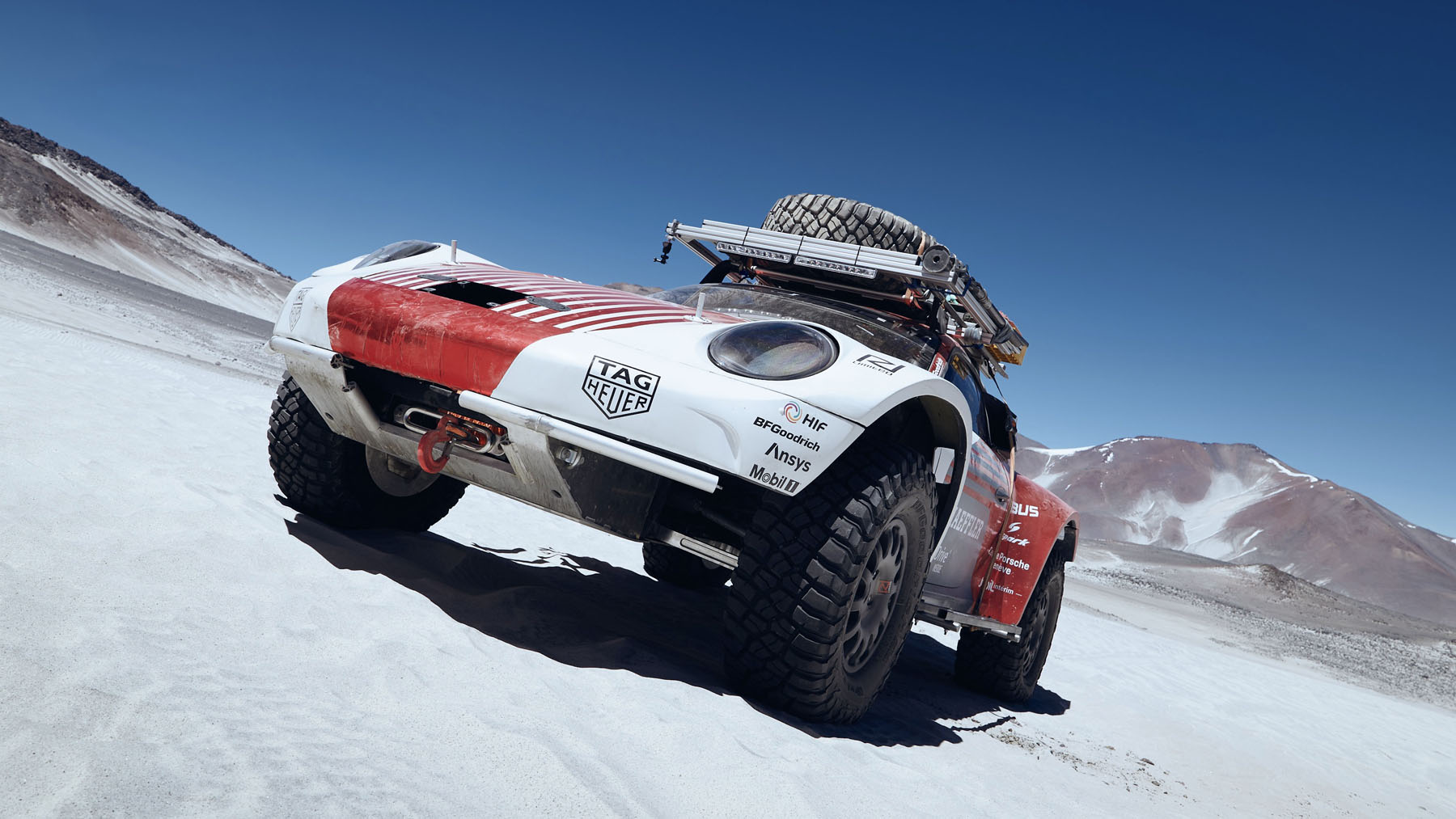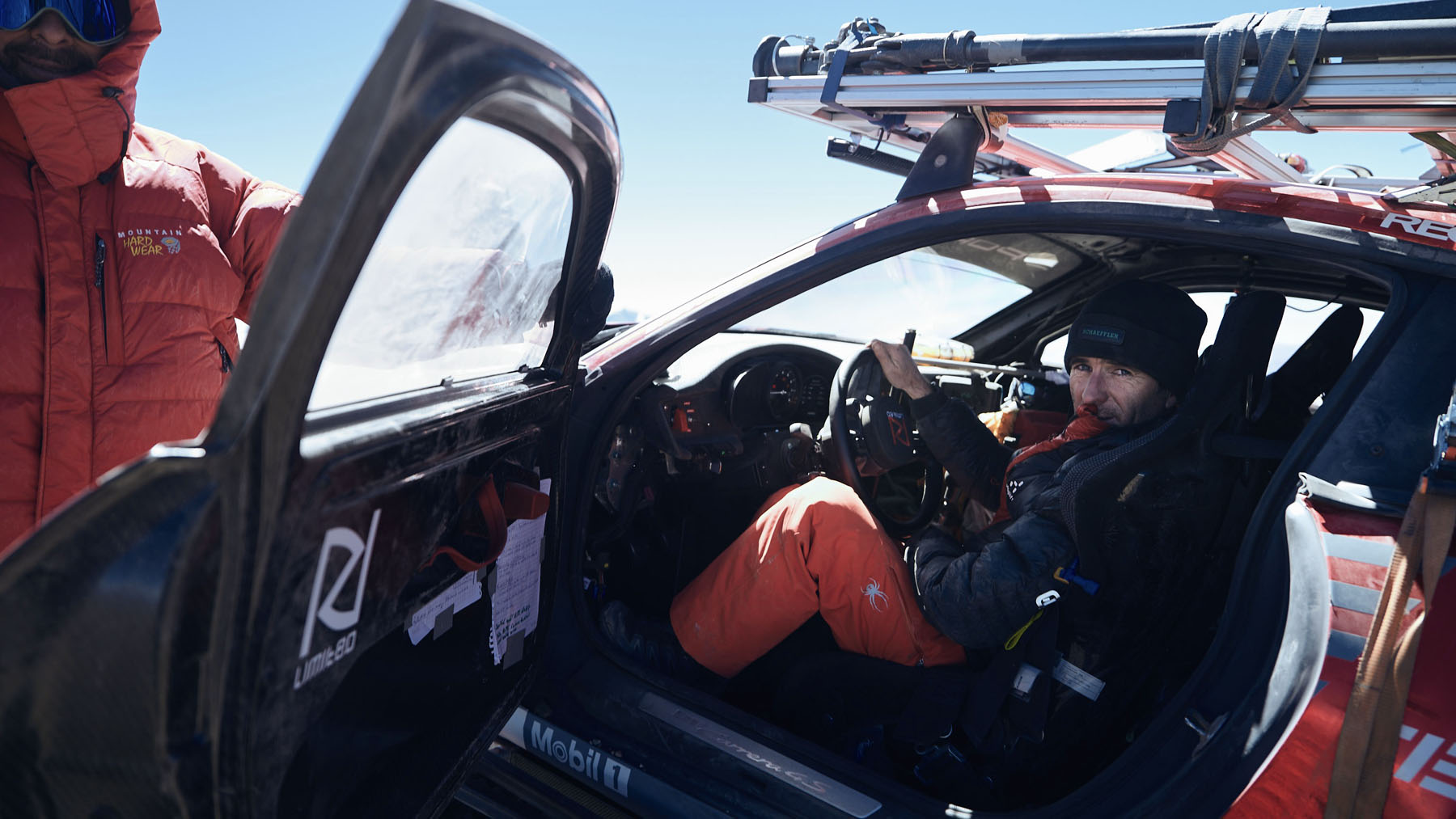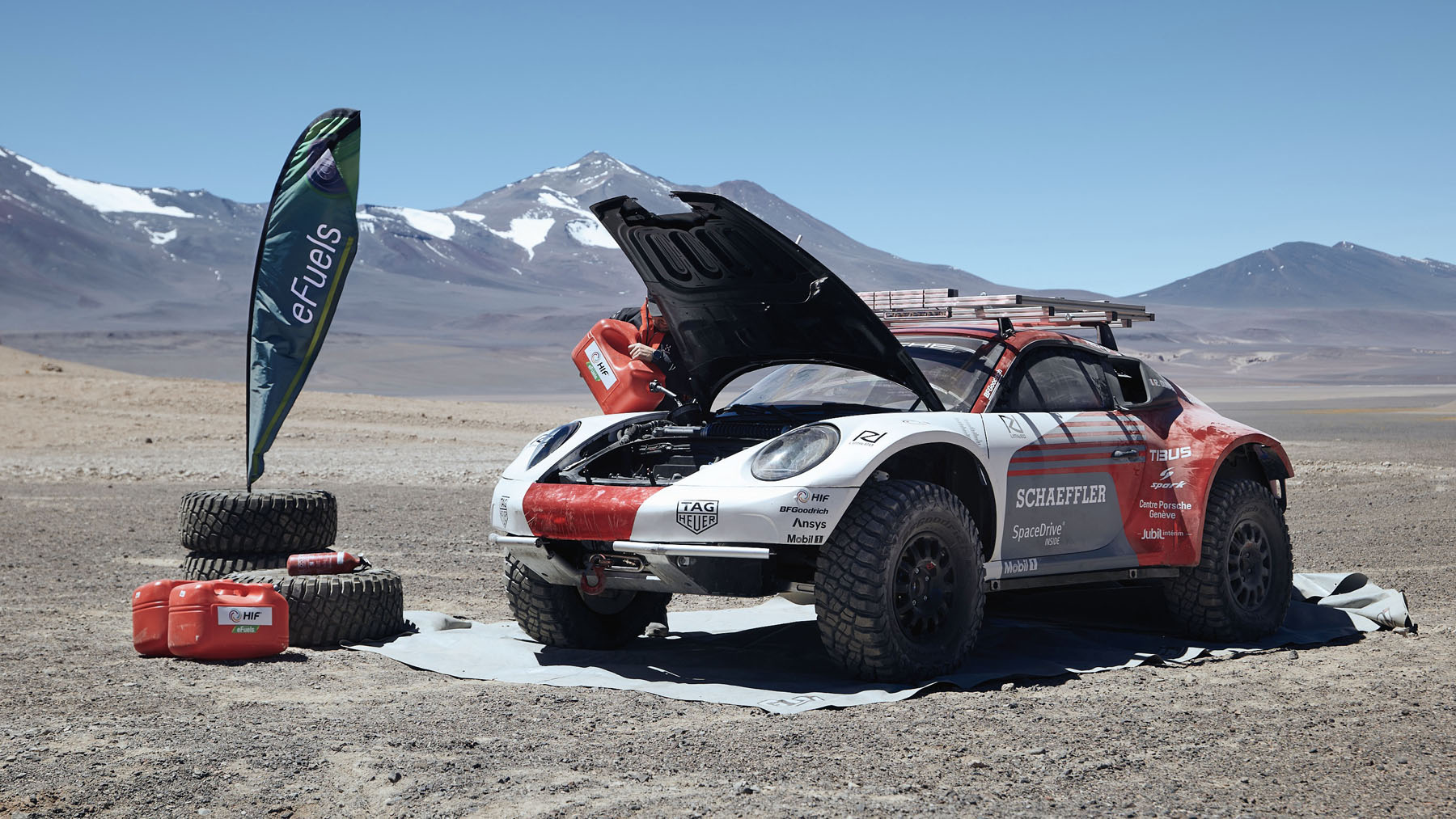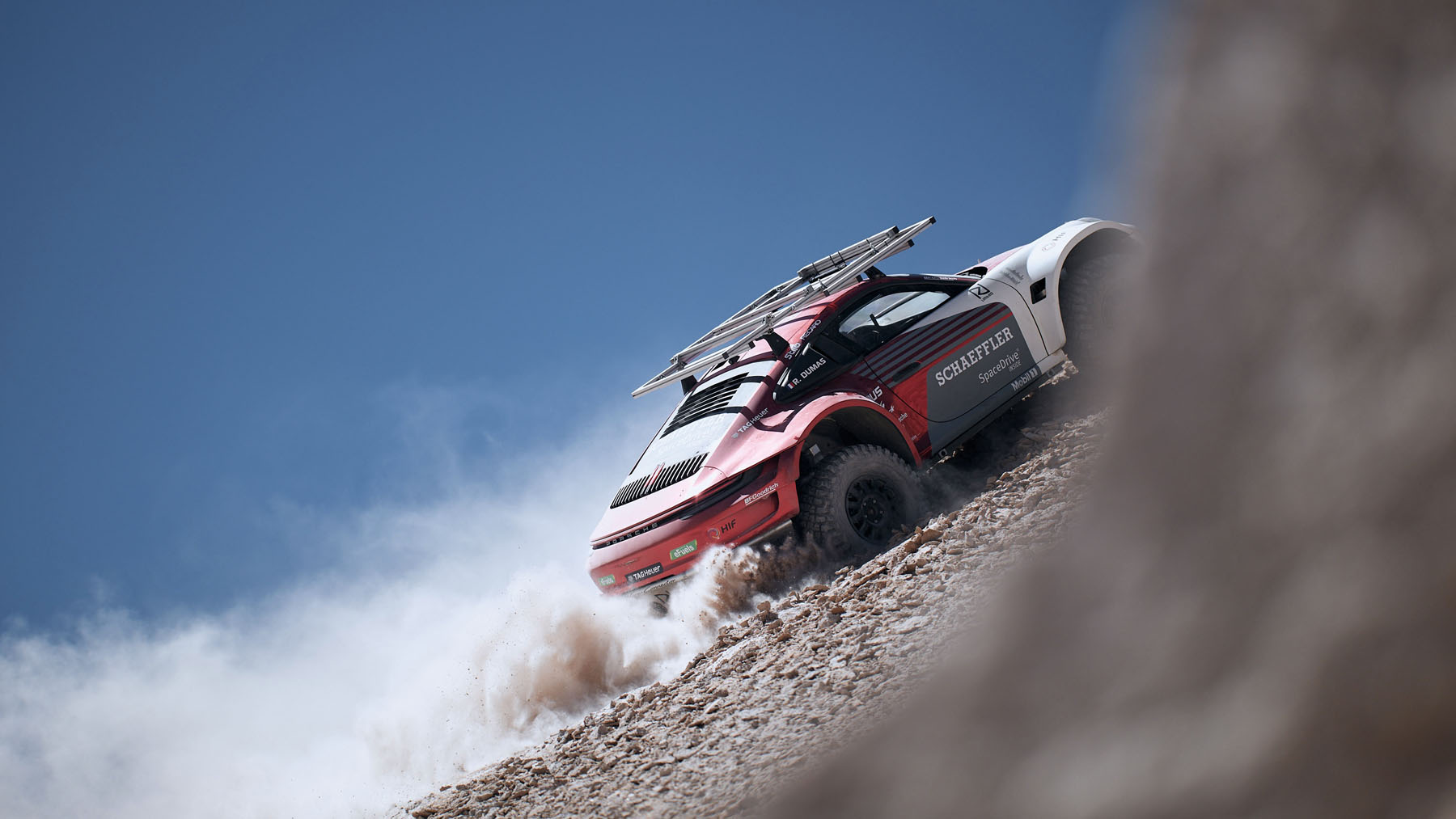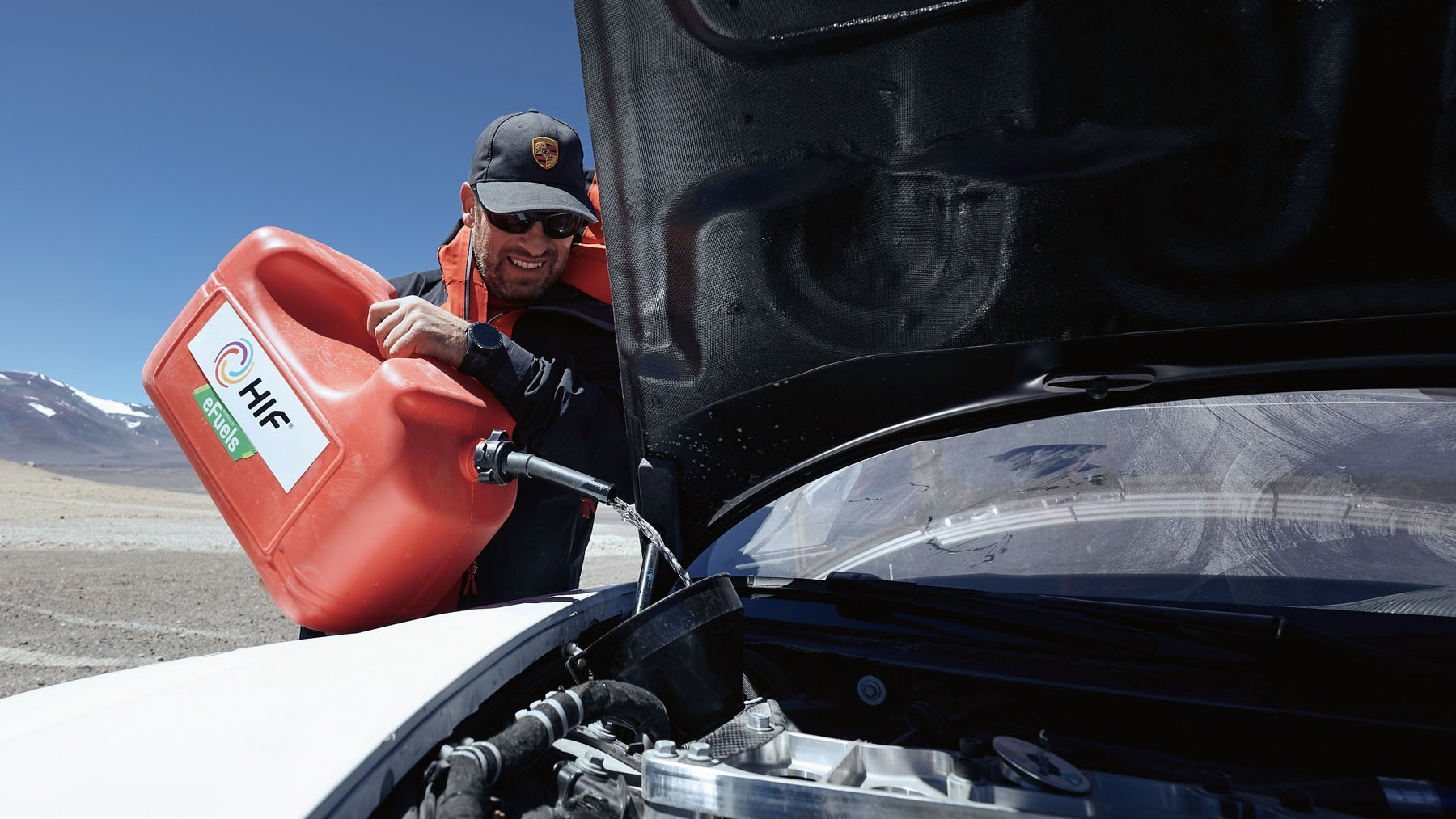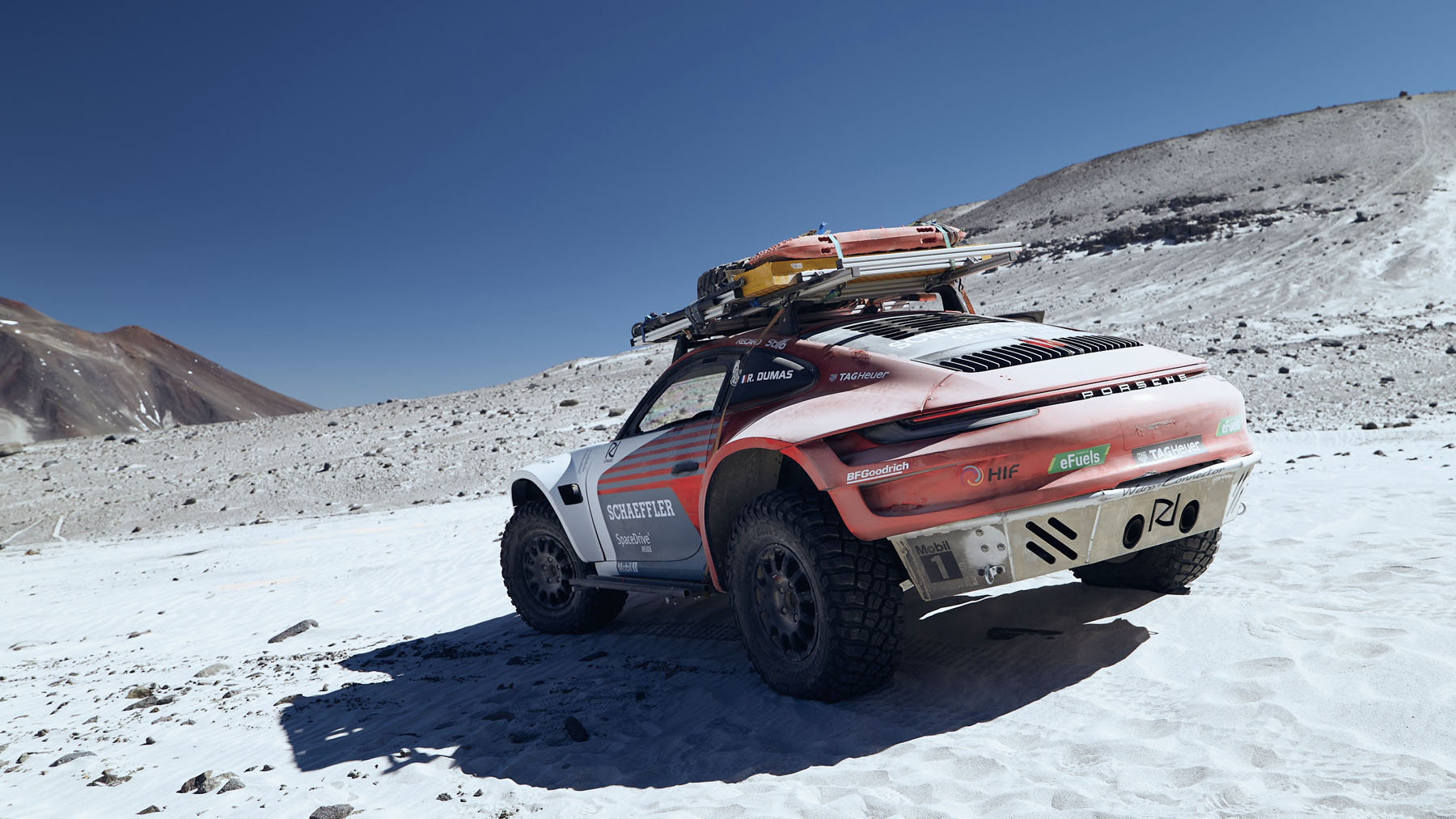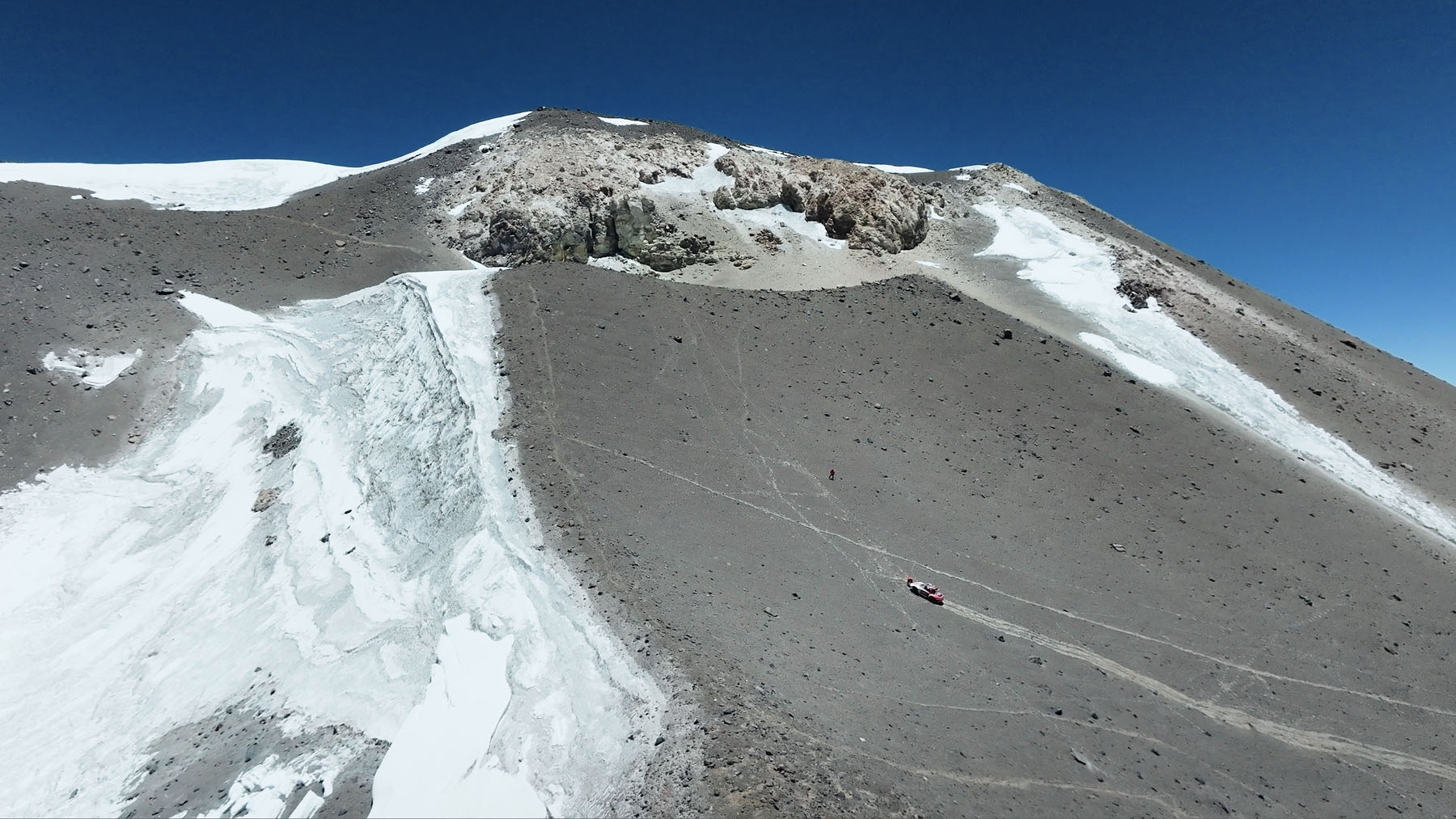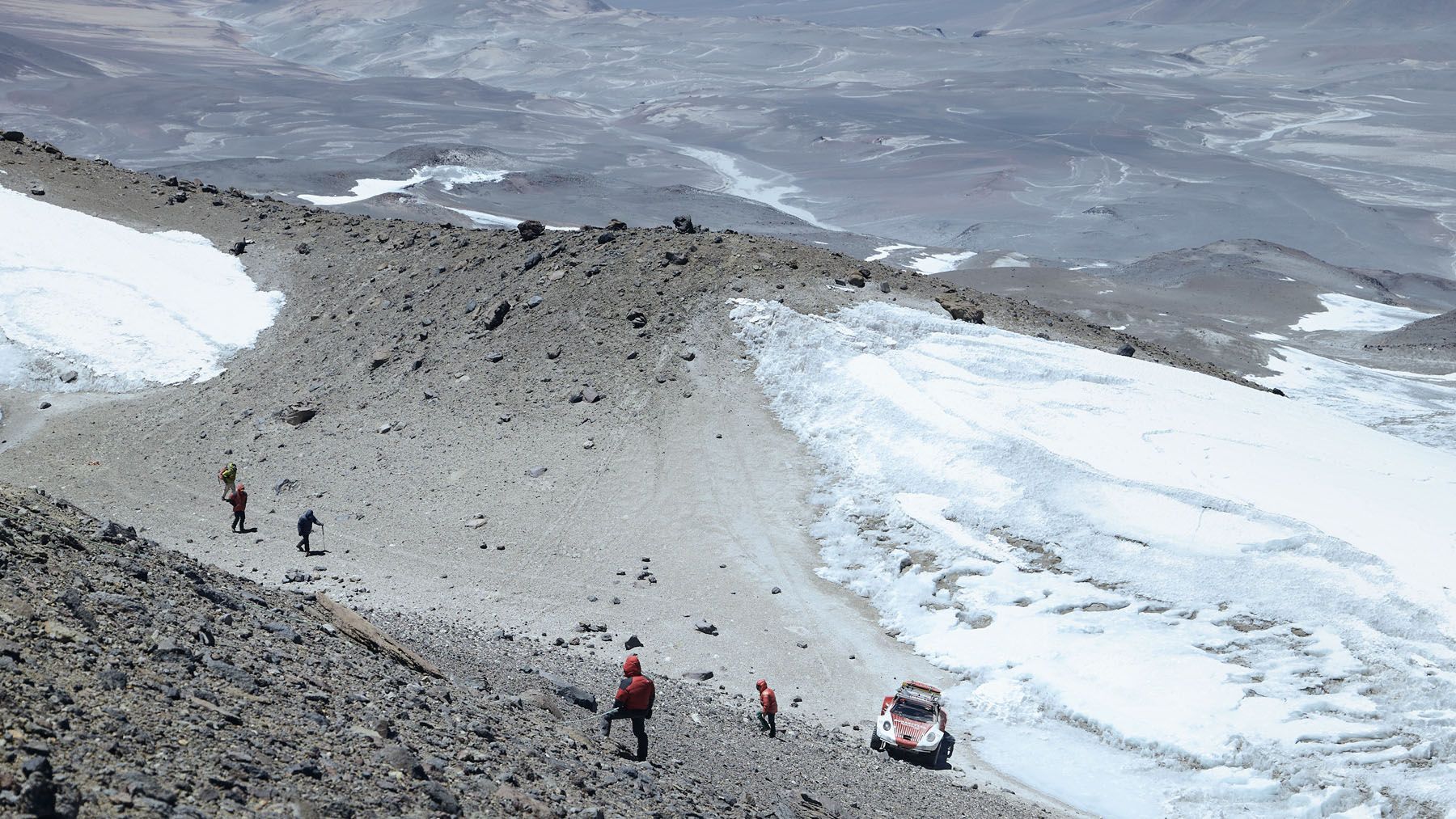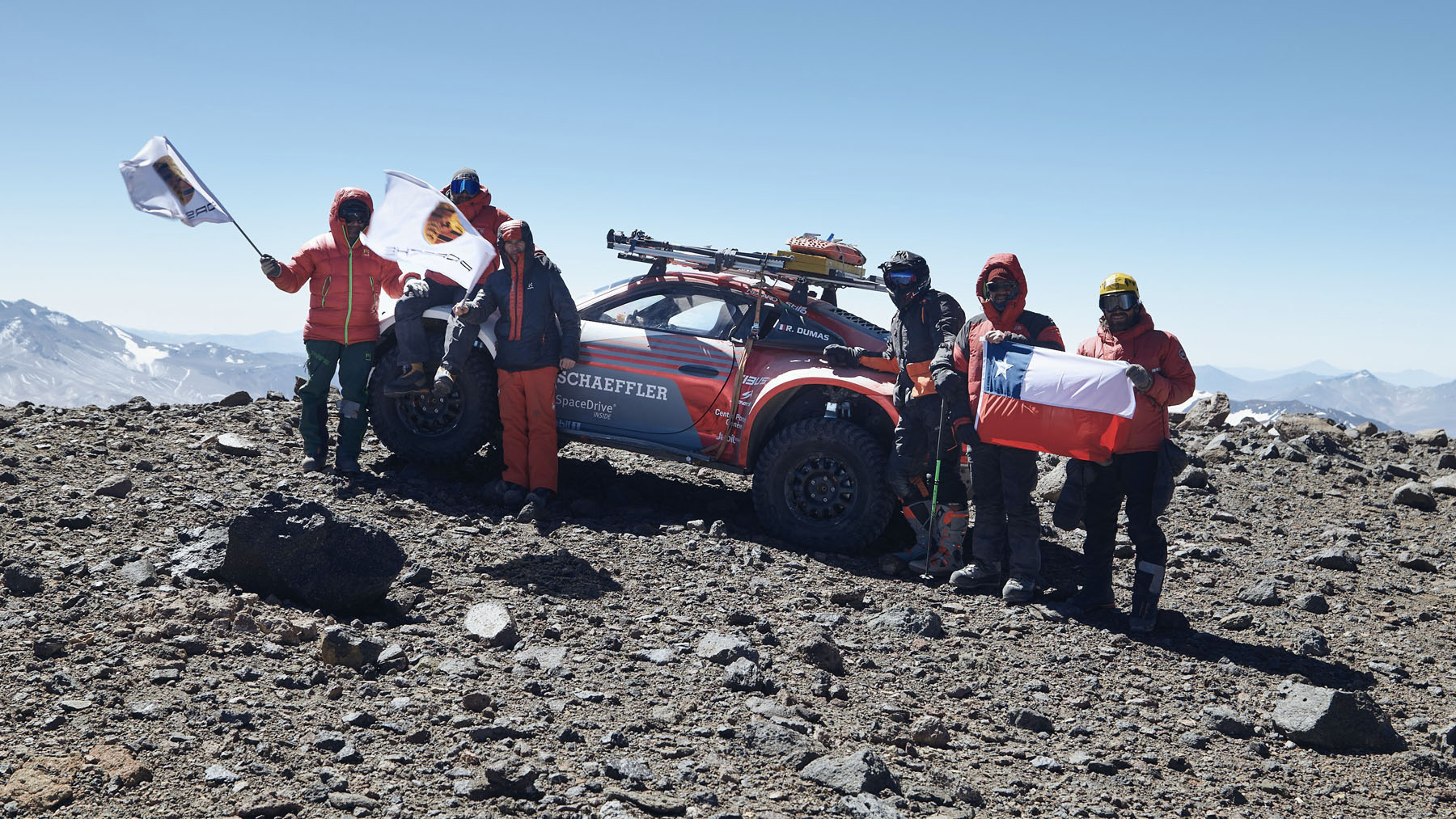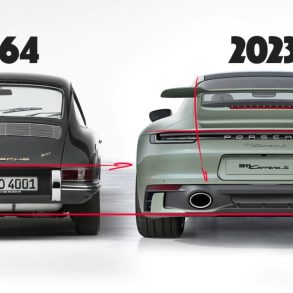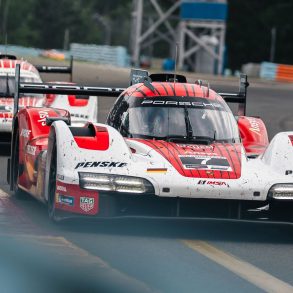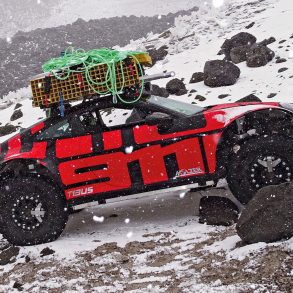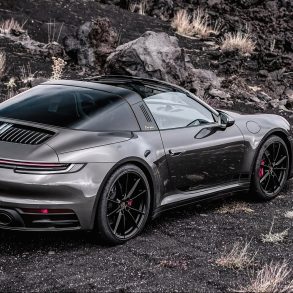22,093 feet above sea level– no car has ever gone higher. On December 2, 2023, racing driver Romain Dumas set a new world record at the peak of the west ridge of the Ojos del Salado volcano in Chile, piloting a significantly modified Porsche 911 running on eFuels. He was supported by an international team of members from Chile, France, Germany, the United States, Canada and Switzerland.
Driver Romain Dumas
The team supporting three-time Le Mans champion Romain Dumas faced extreme conditions. The air at altitude was only about half as dense as at sea level, while temperatures hovered around 20 degrees below freezing. “I’ll never forget this experience. It was an extraordinary feeling to drive where no car has gone before,” said Romain Dumas shortly after his descent from the volcano. “The 911 managed to go higher than any other earthbound vehicle in history. We reached a point where we were met by the true summit of the west ridge – we could go no higher. So this really was the maximum altitude that can be achieved. A proud moment for the whole team – and we’re grateful for the support and belief of all of our partners, each of whom made this possible.”
911, the weapon of choice
The expedition using two significantly modified Porsche 911 models was supported by HIF Global, Schaeffler Group, Mobil 1, BFGoodrich and TAG Heuer. These businesses supported the international team of guides, engineers, drivers and mountain climbers with expertise and technology.
Porsche comments
“Congratulations to the whole team – a remarkable and inspiring achievement,” said Dr. Frank Walliser, Vice President Complete Vehicle Architecture and Characteristics at Porsche AG. “This project began as a ‘what if’ and I’m so proud to work for a company that really believes in pushing the boundaries and learning by exploring. The two 911 models that were used on this expedition were powered by eFuels, which are produced in the HIF pilot planned “Haru Oni in Punta Arenas, which was initiated by us, and are blended per the currently applicable fuel regulations afterward.”
“We’re thrilled by this result, and to have been part of this close and passionate team working on such a special project,” said Clara Bowman, COO, HIF Global. “This is an emphatic demonstration of the capability of HIF Global synthetic eFuels, performing in the most extreme and demanding conditions imaginable. To set a new record after so long is an awesome achievement.”
The project marked a return for the car and the team to the Ojos del Salado volcano, having visited in 2022 and just exceeded 6,000 meters on an exploratory run. By way of context, the peak altitude achieved equates to 1,934 meters beyond the summit of Mont Blanc. The previous record, set in 2020, reached 6,694 meters.
Background detail: The cars
Two modified Porsche 911 models nicknamed ‘Doris’ and ‘Edith’ took part in the record attempt. The record breaking car was developed by RD Limited in collaboration with Porsche. Dumas achieved the record itself in the lighter and more agile ‘Edith’ variant. The extremely off-road capable special conversion is based on the current 911 Carrera 4S. The 443 hp 3.0 liter six-cylinder boxer engine (911 Carrera 4S: Fuel consumption* combined (WLTP) 11.1 – 10.2 l/100 km, CO₂ emissions* combined (WLTP) 253 – 231 g/km) remained in stock form and was paired with the standard seven-speed manual transmission. The car operated with factory-filled lubricants from Mobil 1, which enabled the powertrain to operate without issue, even in the extremely cold climate. The 911 itself proved to be an excellent basis; through robust yet lightweight chassis construction, ample power and the ability to cope well with extremely high altitudes.
The two cars were equipped with carbon fiber seats, and five-point harnesses. Next, portal axles were added to increase ground clearance (now 13.7 inches / 350 mm). The portal axles also had the effect of reducing the gear ratios, allowing for precise, gentle throttle inputs at low speed. In addition, the cars were equipped with special lightweight but extremely tough Aramid fiber underbody protection to allow sliding over rocks.
Steer by wire
The lead car received a very special additional piece of technology – steer by wire – developed and provided by Schaeffler Group. The system called Space Drive was capable of meeting the unique and extreme demands of the volcano and the terrain, offering precision and detailed feedback to allow Romain Dumas to place the car precisely where he needed it – often while ascending precarious and near-vertical slopes.
About HIF and eFuels
Both cars were running entirely on HIF eFuels – created in Chile – during their time on the volcano. eFuels are made from water and carbon dioxide using renewable energy, enabling a potential near net CO₂ neutral use of combustion engines, since the CO₂ captured during the production process of eFuels roughly equals the CO₂ emitted during the usage of the car. Porsche has invested in eFuels as part of its ‘double e-path’ to power sports cars past, present, and future: E-mobility and eFuels. The first integrated pilot plant to produce synthetic fuels, “Haru Oni” in Punta Arenas, Chile, started production at the end of 2022.
Reaching the record altitude
Throughout the expedition, the project took a cautious, safety-first approach. The team took two weeks to slowly acclimatize to the altitudes, slowly gaining in height day after day. The cars had no such difficulties – the standard systems on the 911 sensed the thinner air and adjusted the fueling accordingly, meaning performance was maximized. The team closely monitored not only their altitude but also their heart rate, sleeping patterns, and calorie burn via Connected smart watches, provided by Tag Heuer. This was overseen by two doctors who formed part of the team due to the remoteness of the location and the ever-present risk of altitude sickness and other risks to health brought on by the mix of the thin air and freezing temperatures.
Unlike in 2022, the team encountered relatively little snow at the higher levels of the volcano – but the challenge remained formidable, including finding a path through the boulder fields. The 911 traversed the deep gravel and volcanic ash that forms the slopes, its all-wheel drive system and Warp Connector allowing grip to be maintained. The push for the summit occurred on Saturday, 2 December with the team setting off at 03:30 local time. At 15:58, the summit and the end of the journey had been reached.
Epic view
The team enjoyed the incredible view for a moment, taking a photograph to mark the occasion before carefully starting their descent with the same precision and caution as the ascent – arriving at their base camp over a thousand meters below the summit the following day; weary but proud. The 911 ‘Edith’ had some new scars and a layer of thick volcanic dust, but was otherwise ready to perform the same feat all over again.
All content © 2023 Dr. Ing. h.c. F. Porsche AG


